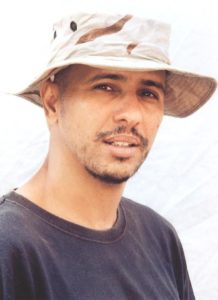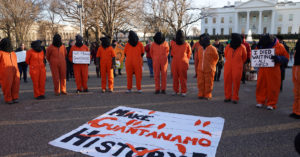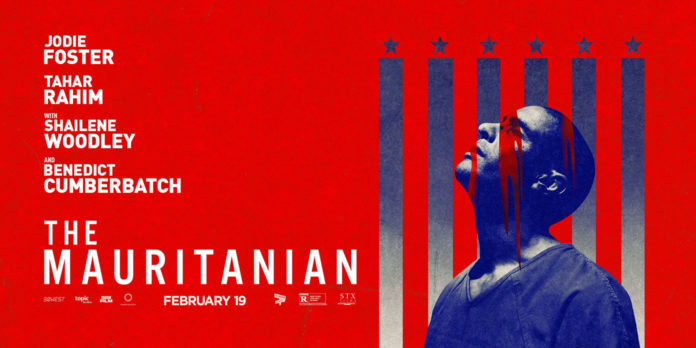The Mauritanian, a legal drama about an innocent man locked up in Guantanamo Bay, is a worthy watch with good intentions that ultimately fails to live up to them fully, writes Sabina Hashmy.
Mohamedou Ould Slahi faced beatings, electrocution, mock executions and sexual humiliation in the Guantanamo. He went onto write a best-selling book and now his story has been made into a movie.
But despite being named after the protagonist of the real life story, the film fails to centre on him and his humanity as a Muslim.
Instead, the true hero of the film is the American legal process and its dogged journey to the truth. And this must see seen as a missed opportunity.
Mohamedou Ould Slahi
The film tells us the harrowing and traumatic true story of Slahi, from his arrest in his home country, his detention without charge at the infamous Guantanamo Bay prison camp for 14 years, and the legal battle for his release.
He is accused of being the mastermind and head recruiter for the 9/11 terrorist plot although no charges are ever filed against him.
Subscribe to our newsletter and stay updated on the latest news and updates from around the Muslim world!

Other characters (yes, you’ve guessed it the white professionals) are rounded out and humanised from their first moments on screen. These include the tough nut defence lawyer Nancy Hollander, brilliantly played by Jodie Foster, and her opposite number fighting the case for the prosecution Lieutenant Col Stuart Couch, a heavily Southern accented Benedict Cumberbatch in the style of Tommy Lee Jones.
From his first moments on screen we learn Cumberbatch has a personal beef with the 9/11 terrorists as his friend was one of the pilots killed on one of the hijacked planes that crashed into the Twin Towers.
Later following a church service he will gallantly comfort his friend’s widow, vowing to bring his killer to justice in the way only Americans can – in other words a lethal injection.
Meanwhile, we learn early on of Hollander’s separation from her husband, which she casually shrugs off as it is made abundantly clear that her human rights legal work is her real priority which she pursues with an icy passion.
Torture
It takes scenes of the most brutal physical, mental, emotional and sexual torture before their viewer and Slahi’s defence team are persuaded that Slahi may actually be innocent.
Prior to that he seems a somewhat cocky and even slightly ungrateful individual who is failing to co-operate fully with his lawyers. His own defence team are more concerned with protecting habeas corpus, the right to a trial before a court, than building a case for his innocence.

Editorial credit: Phil Pasquini / Shutterstock.com
Ironically, the torture is the tool that transforms him from a sulky foreigner with a thick accent to a traumatised and fragile human being that as an audience we can empathise with. The violence is somewhat stylised but evokes a disturbing horror as well as disgust for those responsible, namely Donald Rumsfeld and George W Bush.
Which leads me to question why does it take the instrument of torture as a plot device before we as an audience can step into the shoes of this pious, fragile and misunderstood man and fully comprehend his innocence?
Up until this point his back story appears vague and questionable, leaving the audience scratching their heads as to whether they should be rooting for the guy or contributing to the prosecution team’s legal fees.
Missed opportunities
There are other missed opportunities too. The end credits offer vital and deeply touching details of Slahi’s life which, if woven into the film’s narrative, could have made for a much more engaging and emotionally powerful film. We are able to get a glimpse of the man himself, despite everything he’s suffered he retains a unique gentleness and sense of humour.
On a positive note, the film clearly identifies the power of Slahi’s Muslim faith and his relationship with Allah (SWT) as giving him the strength and endurance to bear witness to and survive the most barbaric cruelties. He is in every sense a true hero, upholding the truth in his memoir, Guantanamo Diary, published in 2015.
As Hollander (Foster) says just over half way through the film: “We need to change the conversation, if we make this case about Mohamedou we’re going to lose, we need a new strategy.”
Replace the word “case” with “film” and we have an idea of what the producers were thinking when they brainstormed the plotline. Sadly this is where they erred, as a film squarely centred on Slahi and his story would have made for a much more engaging and gripping watch.
The Mauritanian is available to watch on Amazon Video.




















